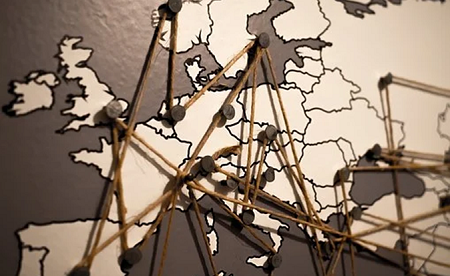FACCE-JPI - 2
'We want countries to work together on important socio-economic questions'

Around 70 institutes have jointly improved their simulation models withing the European knowledge hub MACSUR. This makes them better able to estimate the effects of climate change. 'Now the researchers have to discuss the results with politicians and policymakers', says Huub Löffler, outgoing board member of the European partnership FACCE-JPI.
Potato growers in Flevoland, Scottish sheep farmers and Andalusian olive growers: farmers in every European region, have to adapt to climate change in order to keep the food supply up to standard. Crop and grassland models, farm models and economic calculation models can help. Simulation models also enable policymakers to prevent doomsday scenarios such as high food prices. But then the calculation models should be robust and reliable, and climate change must be taken into account.
Integrating models
"We want ountries to work together on such important socio-economic questions," says Huub Löffler, Strategic Advisor, Development Cooperation, at Wageningen University and Research. "And in the European knowledge hub MACSUR this has been achieved. Since 2012, this network has brought together more than three hundred of European experts in the field of simulation models. Together, they have improved the models and integrated them." Löffler was a member of the Agriculture, Food Security and Climate Change Joint Programming Initiative (FACCE-JPI) Governing Board for seven years.
International agreements
Europe must provide its population with sufficient and good quality food, even if the climate changes. In addition, the EU is committed to contributing to international agreements to reduce greenhouse gas emissions. Because this societal challenge can be better tackled with joint research than with its own research alone, the EU set up FACCE-JPI in 2010. Last month, Löffler retired from the Governing Board to work on other aspects of food security and climate change.
How did FACCE-JPI manage to set up this knowledge hub MACSUR?
"The Scandinavian researchers still used few models. These countries then made 13 million euro available for joint research and training to improve and align the existing models in Europe. The Netherlands is strong in building models, and has contributed by spending time on MACSUR."
What did the collaboration achieve?
"An overlap in research has been prevented, and because of the greater critical mass, the institutes have obtained better models. You can now ask more questions, such as what the production will be with a different crop rotation or other crop varieties, and also what will be the effects of longer periods of drought or more rain. Integrated crop and economic models are now available, allowing researchers to calculate how prices will develop if production goes up or down because of changes in temperatures or in policies."
Why is it so difficult to coordinate international research?
"Researchers have to travel, which is expensive. The management, communication and financial administration of joint projects also cost money. It is not easy for the Member States to release these funds. The spending of national budgets is often fixed. That also applies to the Netherlands. FACCE-JPI tries to bring the research funders together, but that is a lot of work. In the Netherlands alone, at least five funding bodies contribute to the agricultural research: NWO and four ministries."
What other success has FACCE-JPI achieved?
"We have set up joint programmes, together with EU partner ERA-NET, including 'Monitoring & Mitigation of greenhouse gases with ERA-GAS'. In this ERA-GAS programme, ten European research groups are working together on databases, models and techniques to arrive at farms and land uses that emits fewer greenhouse gases. It is good that this programme (EUR 10 million) is there, but it is paid for by the EU. At MACSUR, the Member States themselves bear the costs. That is more like the European Commission meant, when they set up FACCE-JPI. However, the tendency is always to opt for the short term, and to go for financing that already comes from the European Commission, instead of trying to get new finance from the Member States."
How can you align national research so that countries come to joint calls?
"The Knowledge Network Sustainable Intensification (KNSI) is developing methods to arrive at a kind of international assessment framework for sustainability. What indicators of sustainability are available, and how can they be monitored and assessed? The UK is currently leading this trajectory. I can imagine that within this network, researchers will soon inform the research funders of the possibilities for an international sustainability framework. The financiers can then indicate their requirements, after which they come to a joint call."
How is progress with MACSUR?
"We (Governing Board) have given our advice: the simulation models are already pretty good. Priority now lies in discussing the outcomes with policymakers and consultancies, and adapting the models to their needs."
Policy makers in the spotlight with joint programmes
Joint programming is about aligning research & research funding. At the policy level, this includes finding and assembling national priorities into a common research agenda, shared and supported by the national governments involved. In a series of interviews, Dutch policy-makers and funders, as well as researchers from Wageningen University and Research present their part in the joint programming process.
